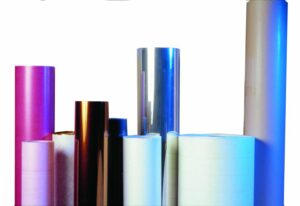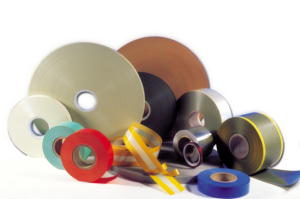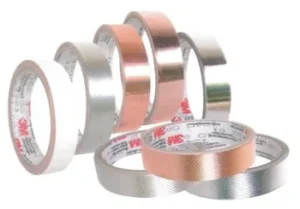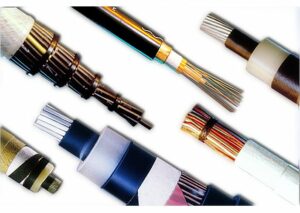- Produits
- Colle
- Ruban adhésif
- Mastic
- Résine
- Gaine
- Vernis Industriel
- Film adhésif
- Marques
- Converting
- Services
- Nos implantations
- Contact
Electrical insulators are used in many applications because they prevent the passage of electrical current between two conductors. Below are the different electrical insulation solutions offered by ADDEV Materials.
These thin (<0.5mm) insulating polymer films, available in rolls, formats or cut peices, have a variable composition and applications
Examples:

These insulating papers are less tahn 1mm thick; single-film or polymers, or made of fibers, compressed, or in non-woven form, or evan an assembly of these two designs.
Examples:

Adhesive electrical insulators are flexible materials, in the form of rolls, with support; papers; films; glass fabrics or foams and coated with an adhesive mass.
There are mainly 5 types of insulating supports intended to receive one of the 3 types of adhesive mass, on 1 or 2 faces.
Important to note: Silicone adhesives have a particularly excellent resistance to extreme temperatures. Logically, silicone adhesives are therefore reserved for high-temperature insulating materials such as Kapton® or Teflon®.

Strengths
Weaknesses
Application Examples
Rubber
Acrylic
Silicone
In addition to being known for their non-stick properties, fluoropolymers (PTFE, FEP, PFA, etc…) have much better dielectric properties than other materials.
Example:
Among the different types of fluoropolymer films, single-sided PTFE Teflon® tapes coated with a silicone adhesive mass, have high dielectric strength, high chemical resistance and excellent temperature resistance.
An adhesive tape can be covered with an adhesive mass on one or both sides, depending on its use.
Example:
Kapton® type double sided tapes are composed of a polyimide film covered on both sides with a high temperature silicone adhesive mass. This product is ideal for electronic and electrical applications.
This range consists of rigid materials, in the form of tubes or boards (thickness 0.1mm to several centimeters), designed by a n assembly of several layers:
This method combines the properties of different electrical insulators to design thick and machinable materials.

It is also possible to ensure the electrical insulation of hollow or difficult to access areas by using materials in liquid form, such as varnishes, mastics, and impregnation resigns
Our teams will answer you as soon as possible